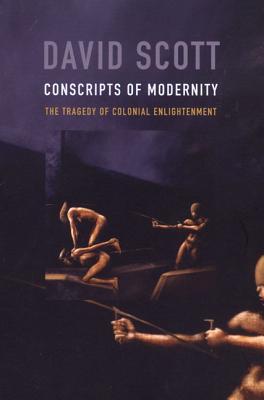Scott explores the political and epistemological implications of how the past is conceived in relation to the present and future through a reconsideration of C. L. R. James's masterpiece of anticolonial history, The Black Jacobins, first published in 1938. In that book, James told the story of Toussaint L'Ouverture and the making of the Haitian Revolution as one of romantic vindication. In the second edition, published in the United States in 1963, James inserted new material suggesting that that story might usefully be told as tragedy. Scott uses James's recasting of The Black Jacobins to compare the relative yields of romance and tragedy. In an epilogue, he juxtaposes James's thinking about tragedy, history, and revolution with Hannah Arendt's in On Revolution. He contrasts their uses of tragedy as a means of situating the past in relation to the present in order to derive a politics for a possible future.

Conscripts of Modernity: The Tragedy of Colonial Enlightenment
Scott explores the political and epistemological implications of how the past is conceived in relation to the present and future through a reconsideration of C. L. R. James's masterpiece of anticolonial history, The Black Jacobins, first published in 1938. In that book, James told the story of Toussaint L'Ouverture and the making of the Haitian Revolution as one of romantic vindication. In the second edition, published in the United States in 1963, James inserted new material suggesting that that story might usefully be told as tragedy. Scott uses James's recasting of The Black Jacobins to compare the relative yields of romance and tragedy. In an epilogue, he juxtaposes James's thinking about tragedy, history, and revolution with Hannah Arendt's in On Revolution. He contrasts their uses of tragedy as a means of situating the past in relation to the present in order to derive a politics for a possible future.